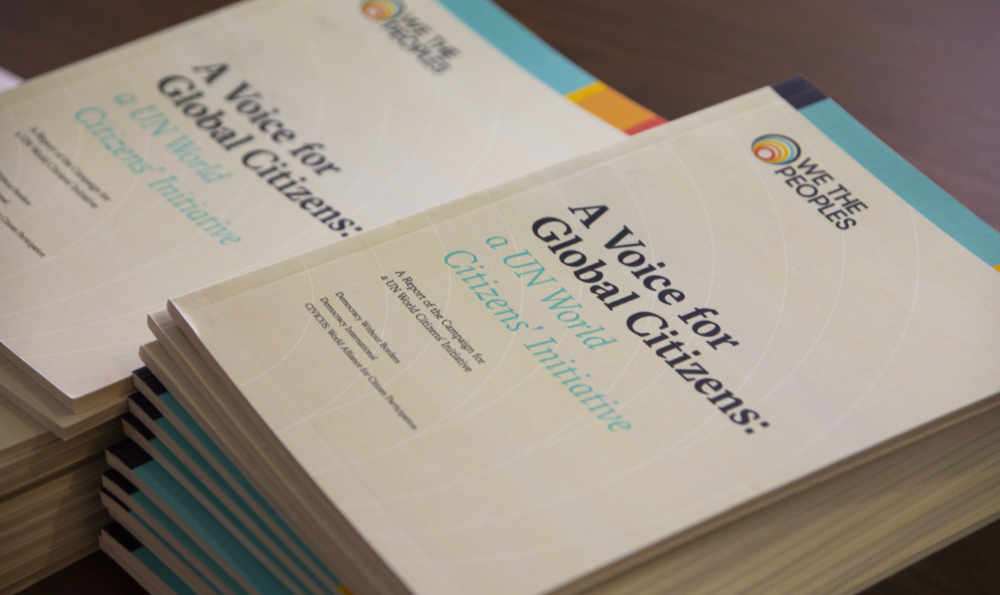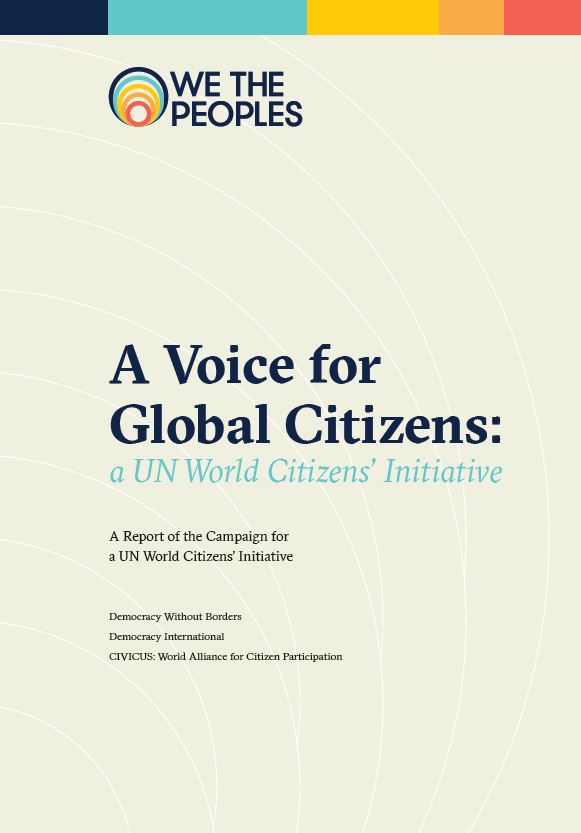This report recommends that the United Nations (UN) should develop its democratic legitimacy through the creation of the instrument of a World Citizens’ Initiative (WCI) by which global citizens can place proposals on the agenda of the UN General Assembly or the UN Security Council. This paper makes the case that a WCI is legally feasible and aims to provide the impetus for the discussions that will lead to its establishment.
The paper offers background on the concept of citizens’ initiatives and discusses challenges to the formalisation of direct citizens’ participation in the environment of the UN. The experience of the European Citizens’ Initiative (ECI) and lessons to be learned from it are examined. A legal framework for the establishment of a WCI is considered in detail. The report recommends that the instrument of a WCI could be established as a subsidiary organ of the UN, under Article 22 of the UN Charter, if such an instrument was supported by a two-thirds majority of the General Assembly. This would include the adoption of detailed rules of procedures and the creation of a WCI Administrative Board.
According to this report, the functioning of a WCI would follow three steps: (1) Registration, (2) collection of support and (3) submission and response.
The report recommends that each WCI would be registered by an organising committee that consists of individuals who may not hold an official political office and who are not formal representatives of civil society organisations. Further, the WCI organising committee is to be geographically representative and its membership should cover UN regions at least in the following way: five members from African and Asian States, one from Eastern European States, two from Latin American States, and two from Western European and Other States.
Once established, a WCI committee would draft its proposal and then formally register it with the WCI Administrative Board for collection of support. The report suggests that only such proposals should be eligible that are in line with the purposes of the UN Charter as stated in Article 1. Within this framework, proposals may have a broad scope. In particular, this includes being able to make reform proposals or propose changes to the UN Charter. Appeals against decisions of the WCI Administrative Board would be handled by an independent Ombudsperson.
The report recommends that a WCI would qualify for submission within 18 months after registration if it (1) collects the support of at least 0.5 percent of the population of each of ten UN member states following the same geographical criteria as above for the composition of WCI organising committees and (2) if an absolute threshold of five million signatures is reached. According to the report, anybody should be able to support a WCI and robust digital tools should be established to facilitate the collection of support. Verification would be undertaken based on random samples, residency information and date of birth.
The reports envisages that a successful WCI proposal will be placed automatically on the agenda of the General Assembly or the Security Council and that it obliges either of them to draft a resolution in response to the proposal and then to vote on this resolution. It is recommended that the WCI organising committee can make representations during the debate and that states are obliged to publish an ‘explanation of the vote’ whether they vote in favour of the resolution or not, in order to provide transparency to the WCI organisation committee.







